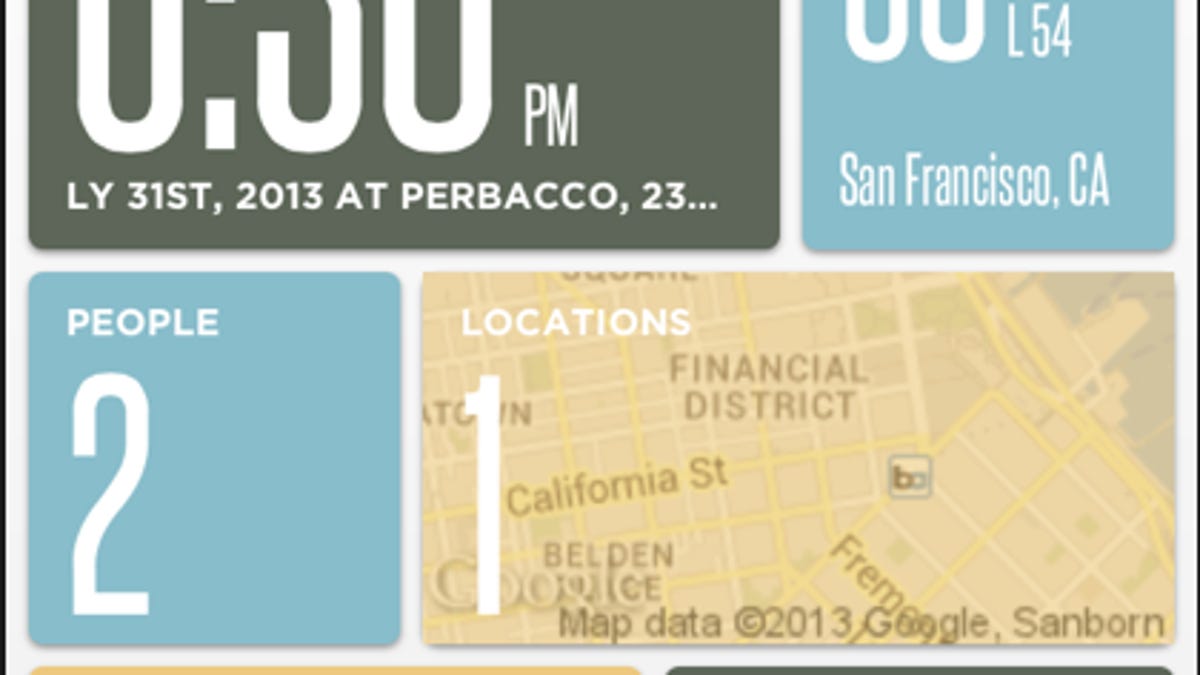Mynd: An intelligent time portal for iOS
Mynd syncs with existing calendars and uses location, contact, map, weather, social network, Evernote, and LinkedIn data to present a contextual snapshot of your day.

Apple's App Store has more than 900,000 apps, including over 5,000 that have something to do with calendaring. It's not easy to break through the clutter, but the just-released Mynd calendar for iOS from Alminder is worth noting.
Mynd syncs with existing calendars and uses location, contact, map, weather, social network, Evernote, and LinkedIn data to present a contextual snapshot of your day. It was based on NeverLate, a previous product from Alminder, which focused on getting people to meetings on time by tapping into location data. A standard calendar view didn't work so well at representing the information, so the company came up with a tile-based view, similar to the Windows 8 interface.
"Our innovation is around metrics and unique views of your day, showing information embedded in events and bubbling them up to higher-level view," said Alminder CEO Max Wheeler. "The tile view seemed to be the one that people gravitated toward the most. We weren't intentionally influenced by Microsoft, it's just good for a modular view of information."
A people tile shows the attendees for meetings that day, for example, and can associate LinkedIn profiles with those attendees. Mynd can also tell you when to leave for a meeting -- based on current traffic conditions -- and predict travel times for future events. The app learns about home and work locations and can send alerts about commute times. The company plans to include walking, biking, and public transit data for Mynd's location tracking in the future, Wheeler said.
Mynd will be available "fairly soon" for Android devices, Wheeler said, and on Windows "as demand requires."
Mynd is not alone in trying to make mobile calendars smarter, and competes with apps such as Tempo, Sunrise, and Cue. "We think we are the best and far deeper on location context awareness than anyone else," Wheeler said.
Mynd also bumps into Google Now in its predictive mashup of location, weather, and calendar data. "We view Google Now as a nice ambient information stream, and when you have idle time, you check it, but it's not a utility to look for something specific to find out about your time. All the context is displayed within our time portal, so it's a completely different use case," Wheeler said.
Mynd is free to end users, but the company is aiming to reach business consumers, with an up-sell to enterprises for access to administration and management features.
"We are following in the footsteps of Evernote, Box, and others in pitching to the individual and having them tell their co-workers and friends, and getting a groundswell of utilization within companies," he added. "This is parallel to BYOD [bring your own device], such as bringing our own phones into the workplace. Now we have BYOA: people bringing their own apps. It's a forcing function that comes from individuals and then corporations looking at our apps as a definitive ROI [return on investment] boost."
Wheeler and his team have some experience in building personal information apps for business users. Many of them worked at Good Technology and Motorola Mobility building mobile apps for enterprise customers. The company is financed by Tugboat Ventures.

